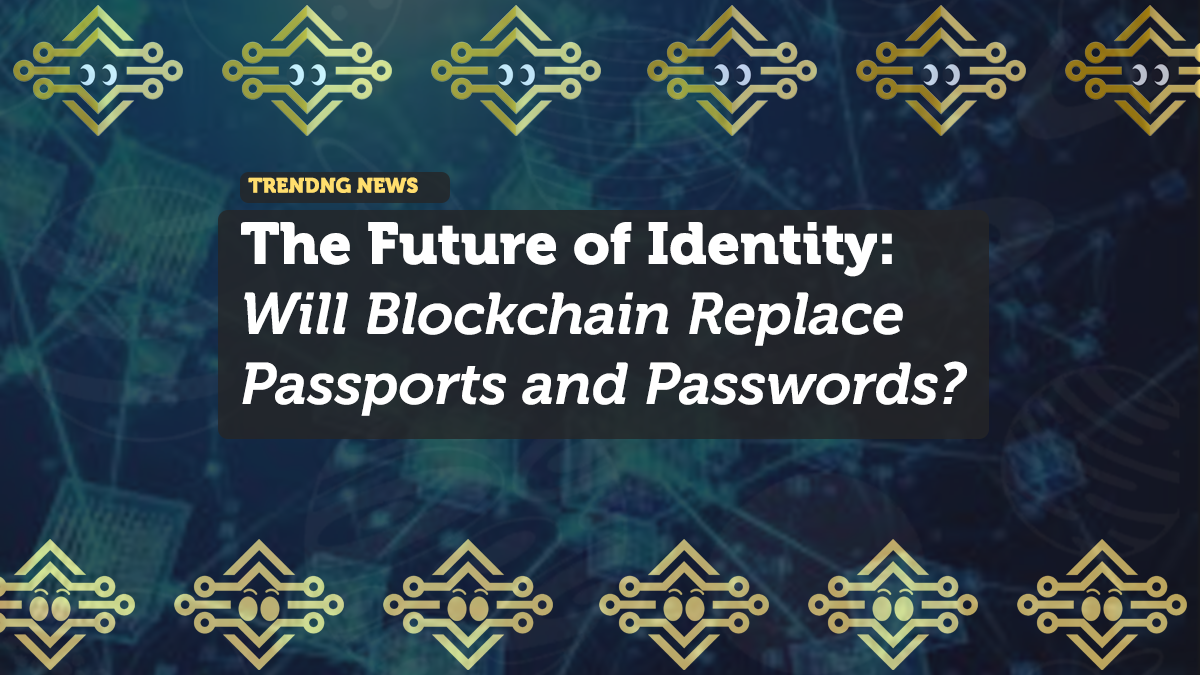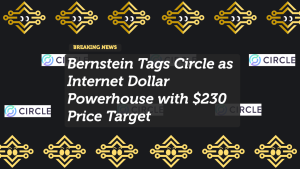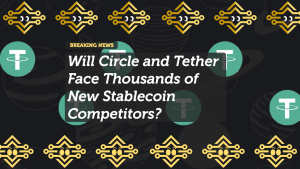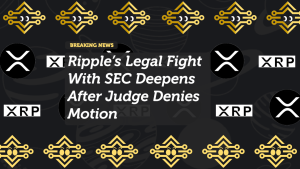
The Future of Identity: Will Blockchain Replace Passports and Passwords?
What if your passport, driver’s license, and medical records were all stored in one secure, blockchain-based identity?
No more carrying documents, remembering passwords, or filling out endless forms. Instead, you control your identity, finances, and data—all from a decentralized digital ID.
This isn’t science fiction. Blockchain-based identity systems are already emerging, and they could completely change how we live, work, and interact.
Let’s explore the future of identity and what happens when passports, passwords, and paperwork become obsolete.
What Is a Blockchain-Based Identity?
A decentralized identity (DID) is a blockchain-powered system that gives individuals full control over their personal information.
Key Benefits of Decentralized Identity
- Self-Owned: You control your identity, not governments or corporations.
- Privacy-Preserving: No centralized databases vulnerable to hacks.
- Tamper-Proof: Data is stored securely on the blockchain, preventing fraud.
- Universal Access: Works globally, across different platforms and services.
- Instant Verification: No need for lengthy approval processes or paperwork.
Instead of logging into websites using Google or Facebook, you’d verify your identity instantly using your crypto wallet or blockchain ID.
How Does Blockchain Identity Work?
Blockchain identity systems use Zero-Knowledge Proofs (ZKPs) to verify information without exposing personal data.
Example of a Zero-Knowledge Proof in Action
Imagine you want to buy alcohol online.
Instead of uploading your ID, a ZKP allows you to prove cryptographically that you’re over 18—without revealing your actual date of birth.
This ensures security, privacy, and fraud prevention, all while maintaining convenience for users and businesses.
Top Blockchain-Based Identity Projects
Worldcoin (WLD)
- Uses biometric eye scans to create a unique blockchain-based global ID.
- Aims to build a universal basic income (UBI) linked to digital identity.
- Backed by OpenAI’s CEO, Sam Altman, but faces privacy concerns.
Polygon ID
- Built on Ethereum’s Layer 2 (Polygon) for scalable identity verification.
- Uses Zero-Knowledge Proofs (ZKPs) to protect user privacy.
- Ideal for governments, businesses, and financial services.
Civic (CVC)
- Provides decentralized KYC (Know Your Customer) verification for crypto exchanges and banks.
- Allows users to prove their identity without storing personal data on centralized servers.
These projects are building the foundation for a world without traditional passports, IDs, or passwords.
What’s Next for Decentralized Identity?
1. No More Passwords—Just Crypto Sign-Ins
- Websites will allow users to log in using their crypto wallet or blockchain ID.
- Google and Facebook logins will be replaced by decentralized authentication.
- Users won’t need to reset passwords—ever again.
2. Governments Issuing Blockchain-Based Citizenship
- Some countries could create digital passports stored on the blockchain.
- Border control could be automated with instant blockchain verification.
- Nations like Estonia are already testing blockchain-based digital IDs.
3. Financial Freedom Without Banks
- Your crypto wallet becomes your full financial identity.
- No need for banks, credit scores, or loan approvals—DeFi will replace traditional banking.
- Users could secure loans, buy property, or receive payments purely through blockchain identity verification.
4. Medical Records on the Blockchain
- Health records will be securely stored and instantly accessible worldwide.
- No more transferring medical records between doctors.
- Patients will control who can access their health data, improving privacy.
5. Digital Education and Work Credentials
- Universities will issue blockchain-based diplomas, making it impossible to fake degrees.
- Employers will instantly verify work experience and academic qualifications.
- Job applications could be processed within seconds instead of weeks.
The Big Question: Will Governments Accept It?
Not all governments are on board with decentralized identity. While some see it as a path toward innovation, others view it as a threat to state control.
Pro-Crypto Governments
| Country | Blockchain Identity Initiatives |
|---|---|
| Estonia | Offers e-Residency, allowing global citizens to run businesses digitally. |
| Singapore | Testing blockchain-based passports and identity systems. |
| El Salvador | Introduced Bitcoin as legal tender and is exploring blockchain ID systems. |
Anti-Crypto Governments
| Country | Blockchain Identity Stance |
|---|---|
| China | Banned crypto but is developing state-controlled digital IDs. |
| United States | Unclear stance—some states support blockchain identity, but federal regulation remains uncertain. |
Some governments might resist change, but decentralized identity is growing too fast to ignore.
The Future: Will You Have a Blockchain Identity?
Imagine a world where:
✅ You travel without a passport—just scan your crypto ID.
✅ You buy a house with a blockchain contract, no paperwork needed.
✅ You apply for a job and get instantly verified—no fake resumes.
✅ You own and control your medical data—no hospital bureaucracy.
Is This Future Inevitable?
- Big Tech is moving toward decentralized identity solutions.
- Web3 adoption is rising, with companies integrating blockchain authentication.
- More governments are experimenting with blockchain for identity verification.
The transition is happening—the only question is how fast.
Final Thoughts: The Identity Revolution Is Coming
In the next 5-10 years, blockchain-based identity could completely replace traditional ID systems.
What This Means for You
- No more passwords—crypto wallets and blockchain IDs will replace them.
- No more paper documents—passports, licenses, and bank records will be digital.
- More control over personal data—users decide who sees their information.
- A new digital economy—where people interact seamlessly across borders without bureaucracy.
The Big Question: Would You Trust a Blockchain ID for Your Entire Life?
Would you embrace a world where your entire identity—financial, medical, legal—exists on the blockchain?
Or do you think governments and corporations will resist this change?
Let’s discuss! Would you adopt a blockchain identity today?
















